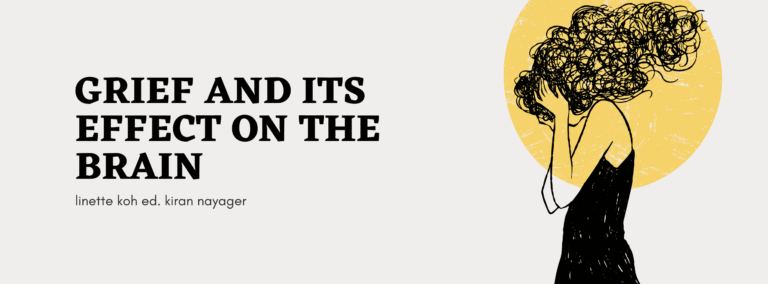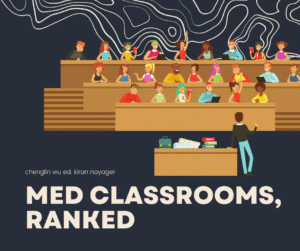
By Jerrica Kuan; Edited by Katerina Theocharous
The thing about burning out, is that you have to be on fire first.
You’ve probably heard about burnout plenty of times from MedFac – maybe you even did your Foundies assignment on it. Something something ‘50% of UNSW medical students experience mental health issues’ something something ‘get help’ something something. A whole list of helplines and support networks thrown in your face in the last slide of a lecture, a few stern lines about checking in with your friends and yourself, and maybe some heartfelt advice from seniors about how it is completely okay to ask for help.
But how much do you really listen to?
A survey of 376 medical students in Brazil detected burnout in 14.9% of students and found that a further 57.7% were at risk. Moreover, it presented evidence of increasing prevalence of burnout with progression through medical school and beyond (Almeida et al., 2016). In 2013, UNSW also conducted its own survey of 1,811 Australian medical students, finding that 40-50% experienced emotional exhaustion and symptoms of depression or anxiety, and an alarming 1 in 5 students reported suicidal thoughts (Vollmer-Conna, 2016). Acknowledging the problem is one step in the right direction. We know all too well that medical school is a high-stress environment perfect for burnout to manifest and only increases with time. Yet, even with this knowledge, why is there still such a stigma surrounding it?
As explained by Fraga (2019), “One of the largest problems when it comes to burnout is that many people feel ashamed for needing help, often because their work environments don’t support slowing down”. The fear of seeking help due to disruption in studies, effects on reputation, or even effects on personal life is perhaps shared by many. Another survey across six American medical schools in 2012 showed that students with burnout had higher perceived stigma around burnout and greater fear of discrimination and confidentiality breaches (Dyrbye et al., 2015). Would a patient want a doctor who has mental health problems? Is mental health care provided by schools really confidential? Who can access our medical records? Would seeking help hinder our progress in the program or in the future? What would our teachers, friends, and family think?
But in addition to all this, there is undoubtedly another component to burnout – what we think of ourselves. Not many are able to admit that they are struggling, especially if they were doing so well before. Perhaps it is also our pride of being strong in the face of adversity. If everyone else seems to be coping well, we automatically assume that we are the odd one out trying to survive and so we do everything to hide our weaknesses. The shame attached to being vulnerable and judgement from others may be what prevents us from opening up, but what will it take to admit that we are burning up in the first place?
“People with symptoms of burnout may fear that taking time away from work or investing in self-care makes them “weak,” and that burnout is best overcome by working harder.
Neither of these is true.”
– Fraga, 2019
If we entered medical school to help others, why do we think ourselves inferior for that help? Are we not equally as human as our patients? Doctors are so often expected to project an air of bravado, to be lights in the face of desolation or guardians that fight death with our bare hands and pure wit. Yet we breathe the same air and bleed the same red blood as our patients. We battle death and we succumb to it just as everyone living in this world. Maybe we have had heavy expectations placed on us to be strong, but we are no different from anyone else. We deserve the same help we give to others.
With the recent implementation of self-care days for all UNSW medical students, ground-breaking steps to de-stigmatise mental health issues are increasingly being taken. However, there is still much to be done to reduce the perceived stigma surrounding our mental health. More dialogue is needed regarding not only our own attitudes towards mental health, but also the systemic changes in medical school that could make these topics easier to discuss and could break down barriers to getting help. As Vollmer-Conna (2016) pointed out, “Unless we understand the spectrum of risks and triggers of student mental health problems, Band-Aid solutions hastily put in place are not likely to offer effective or lasting solutions.”
If we know how important mental health is, why are we not doing more?
Our fiery passion for medicine can be strong, but with wild flames, sometimes the smoke can overwhelm us. Perhaps with all the triumphs of medicine and the struggles, there is a reason we are willing to burn. But we must be aware of what standing in the fire too long can do to us, or we will be consumed in the ash.
References
Almeida, G. de C., Souza, H. R. de, Almeida, P. C. de, Almeida, B. de C., & Almeida, G. H. (2016). The prevalence of burnout syndrome in medical students. Archives of Clinical Psychiatry (São Paulo), 43(1), 6–10. https://doi.org/10.1590/0101-60830000000072
Vollmer-Conna, U. (2016, December 12). We don’t know enough about mental health in Australian medical students. UNSW Newsroom. https://newsroom.unsw.edu.au/news/health/we-don%E2%80%99t-know-enough-about-mental-health-australian-medical-students
Dyrbye, L. N., Eacker, A., Durning, S. J., Brazeau, C., Moutier, C., Massie, F. S., Satele, D., Sloan, J. A., & Shanafelt, T. D. (2015). The Impact of Stigma and Personal Experiences on the Help-Seeking Behaviors of Medical Students With Burnout. Academic Medicine, 90(7), 961–969. https://doi.org/10.1097/acm.0000000000000655
Fraga, J. (2019, June 5). Why the WHO’s Decision to Redefine Burnout Is Important. Healthline; Healthline Media. https://www.healthline.com/health/mental-health/burnout-definition-world-health-organization











